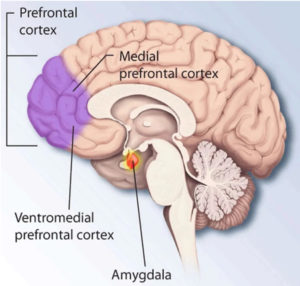This is How Meditation Affects Your Brain!!! | davidji
This is Your Brain on Meditation | davidji
Welcome to this week’s edition of The Source in which we
explore the scientific results meditation has on the brain.
The newest brain science has shown very specifically how meditation affects our brains. In the groundbreaking 2012 Yale stress study published in the online journal Biological Psychiatry, researchers found that stressful life events such as divorce or job loss impacted the brains of even healthy individuals making them less capable of enduring subsequent stressful events by hindering their emotions and self-control.

Prior to this study, the effects of stress on the brains of healthy individuals had been unclear. But after brain scanning 103 healthy subjects who had been interviewed about traumatic stress and adverse life events, such as the death of a loved one, loss of a home to natural disaster, job loss, or divorce, scientists observed “across-the-board marked shrinkage” in the medial prefrontal cortex, the anterior cingulate, and the insula, the parts of the brain responsible for personality expression, emotions, decision-making, self-control and goal-achievement. And, these parts of the brain shrunk with every additional stressful life event a test subject had experienced.
The lead author of this cutting edge study, Emily Ansell concluded that, “the accumulation of stressful life events may make it more challenging for these individuals to deal with future stress, particularly if the next demanding event requires effortful control, emotion regulation, or integrated social processing to overcome it.” And, as we now know, the next “demanding” event will indeed require those skills.
Neurological surgeons operating on brain tumors had previously known that eliminating up to two thirds of the medial prefrontal cortex resulted in concentration issues, judgment, problem-solving difficulties, and inability to think in the abstract. And this is exactly what happens to our brain after we experience an intense stressor leading to the conclusion that stress has virtually the same impact as surgery on the brain!
But, don’t despair – this is not a Cuckoo’s Nest moment. One of the most potent benefits of meditation is the suppressing of cortisol so the body’s functions can return to normal following a stressful event. “The brain is dynamic and plastic and things can improve — but only if stress is dealt with in a healthy manner. If not, the effects of stress can have a negative impact on both our physical and mental health,” said Rajita Sinha, the Yale Foundations Fund Professor of Psychiatry, and a professor in the Department of Neurobiology. When it comes to stress and the brain, size really does matter. And right in your hands, you hold the key to dealing with stress in a healthy manner.
Studies have shown that people who secrete higher levels of cortisol in response to stress tend to eat more carbohydrates than people who secrete less cortisol. Increased levels of cortisol shrink the hippocampus, impacting memory formation, new brain cell development, and our ability to learn. Simultaneously, cortisol increases the size of our amygdala, keeping us in fear-based learning mode.
In my book “destressifying” I outline a meditation study at the University of Massachusetts, in concert with Massachusetts General Hospital (MGH) and Harvard Medical School, tracked changes to the physical structure of the brain using MRI scans over 56 days. All 16 test subjects meditated on their breath for 30 minutes a day and experienced the following structural shifts:
- An increase in the size of the hippocampus, the part of the brain responsible for learning, memory, and spatial orientation
- A decrease in the size of the amygdala, the part of the brain responsible for fear, anger, and stress
Peace. -davidji
No comments:
Post a Comment